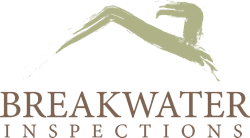Why should I get my water tested?
Many factors can affect the quality of the water we have in our homes. Whether the water comes from a public utility or from a well, our water can contain chemicals and minerals that can be harmful to our health. Sometimes the water has a strange color or odor which can be an indication of a problem, and sometimes the contamination is undetectable without a lab test.
Well water is often affected by chemicals or fertilizer bi-products leaching into the ground or streams that feed the aquifers that supply the well. Sometimes the source of the contamination is a chemical or mineral deposit deep in the ground that the aquifer runs through. It is also possible for well casings or heads to become damaged and allow chemicals or animal bi-products to pollute a well from the surface.
While water utilities are compelled by the Federal government to test their water on a regular basis and provide the water test report results to their customers, private wells (generally) have no regulation and are rarely tested.
All well water should be tested for contamination when a house is purchased. Contamination can be bacterial (e.g. as coliform or e. coli), chemical (e.g. arsenic, nitrates or nitrites), or from metal (e.g. copper, lead, or iron). Some of these things may bother the digestive systems of both people and pets. Others may cause corrosion issues in the home’s plumbing system. Others still can be health hazards.
In addition to testing at the time of purchase, wells should be re-tested every 1 to 3 years, since environmental conditions can change and affect the water quality.
Breakwater Inspections can provide water quality testing services that screen for the contaminants that can be of a concern to you, to help put your mind at ease. No one needs the worry of wondering if there is something in their water that shouldn't be there.
Return to the Services page

How is water quality testing done?
A water sample is collected from the house following a careful procedure, which is then sent to a State-certified lab for analysis. The results will be provided to you usually within just a few days.
Breakwater Inspections can perform several types of water tests, and all tests required for any real estate transaction. While each different factor or contaminant can be tested for individually, the tests are grouped for simplicity.
Test 1 - Usually required by conventional mortgages
Arsenic, Chloride, Copper, Fluoride, Hardness, Iron, Coliform + E. Coli (count), Lead, Manganese, Nitrate, Nitrite, pH, Sodium
Test 2 - Usually required for all FHA and Housing and Urban Development mortgages
Arsenic, Chloride, Copper, Fluoride, Hardness, Iron, Coliform + E. Coli (count), Lead (first draw), Manganese, Nitrate, Nitrite, pH, Sodium
Test 3 - Usually required for USDA and Maine Drinking Water Program
Coliform + E. Coli (count), Nitrate, Nitrite
Test 4 - Usually required for Rural development mortgages
Chloride, Copper, Fluoride, Hardness, Iron, Coliform + E. Coli (count), Manganese, Nitrate, Nitrite, pH, Sodium
Test 6 - Usually performed when there is a particular concern about uranium in the water
Uranium
Test 5 - Usually performed when there is a particular concern about lead in the water being introduced by the plumbing
Lead (first draw)
The tests that Breakwater Inspections offers:
Accepting:
Call or email Breakwater Inspections with any questions you may have.
Schedule your inspection today!
207-956-0323
QUALITY • INTEGRITY • RELIABILITY

© Copyright 2012 Breakwater LLC • Website Disclaimer





























